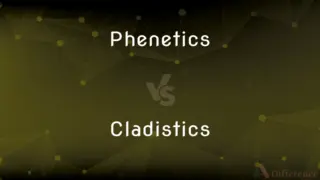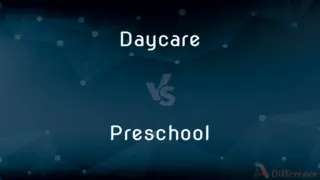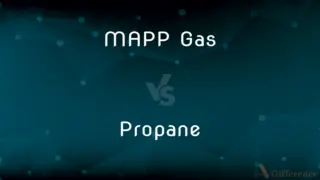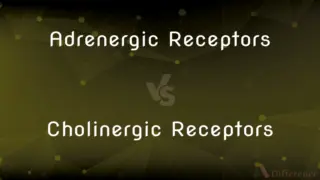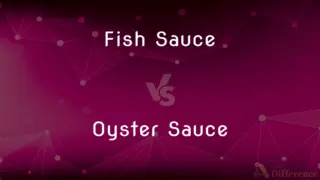Pedagogics vs. Pedagogy — What's the Difference?
Edited by Tayyaba Rehman — By Urooj Arif — Updated on May 8, 2024
Pedagogics involves the methods and principles of teaching, while pedagogy refers more broadly to the theory and practice of education.

Difference Between Pedagogics and Pedagogy
Table of Contents
ADVERTISEMENT
Key Differences
Pedagogics specifically focuses on the methods and techniques used in teaching, aiming to optimize student learning. Whereas pedagogy encompasses a broader scope, dealing with the overall theory and application of education strategies.
Pedagogics is often seen as a practical subset within the larger academic discipline of pedagogy, concentrating on the how of teaching methods. On the other hand, pedagogy explores not only the how but also the why behind educational processes.
Teachers might apply pedagogics in everyday classroom settings to enhance instructional techniques. In contrast, pedagogy might be discussed and theorized in academic papers or at education conferences, emphasizing theoretical frameworks.
In pedagogics, the emphasis is on applying established educational theories and practices in real-life teaching scenarios. Conversely, pedagogy often involves the development and analysis of these theories, pushing the boundaries of educational philosophy.
Pedagogics can be more directly linked to the training of educators, focusing on improving their practical teaching skills. Meanwhile, pedagogy can influence education policy and reform at a systemic level, affecting curriculums and educational standards.
ADVERTISEMENT
Comparison Chart
Focus
Teaching methods and principles
Theory and practice of education
Application
Classroom and training settings
Broad educational systems and theories
Aim
Improve and optimize teaching techniques
Develop educational theories and strategies
Primary Beneficiaries
Teachers and educators
Educational theorists and policy makers
Scope
Narrower, practical
Wider, theoretical
Compare with Definitions
Pedagogics
A branch of knowledge concerned with the principles of teaching.
She studied pedagogics to understand different teaching methodologies.
Pedagogy
The systematic study of how education occurs.
The university offers a master's degree in pedagogy focusing on educational innovations.
Pedagogics
Techniques and methods used by teachers in educational settings.
The conference on pedagogics introduced several innovative teaching tools.
Pedagogy
The discipline concerned with the theory and practice of education.
Pedagogy is a critical area of study for anyone involved in educational leadership.
Pedagogics
Practical aspects of teaching as a profession.
His pedagogics training focused heavily on classroom management and student engagement.
Pedagogy
The art or profession of teaching, including instructional methods.
His approach to pedagogy is highly influenced by progressive educational theorists.
Pedagogics
The study of educational strategies in the classroom.
Pedagogics often involves analyzing the impact of various teaching styles on student performance.
Pedagogy
Theories and practices that underpin teaching and learning.
She integrates new research into her pedagogy to improve student engagement.
Pedagogics
The art or science of teaching; instructional methods.
Effective pedagogics require continuous learning and adaptation by educators.
Pedagogy
A set of instructional techniques and the theory behind them.
Modern pedagogy often incorporates technology to facilitate learning.
Pedagogics
The art of teaching; pedagogy.
Pedagogy
Pedagogy (), most commonly understood as the approach to teaching, is the theory and practice of learning, and how this process influences, and is influenced by, the social, political and psychological development of learners. Pedagogy, taken as an academic discipline, is the study of how knowledge and skills are imparted in an educational context, and it considers the interactions that take place during learning.
Pedagogics
The science or art of teaching; pedagogy.
Pedagogy
The method and practice of teaching, especially as an academic subject or theoretical concept
Subject-based pedagogies
The relationship between applied linguistics and language pedagogy
Pedagogics
The science or art of teaching; the principles and rules of teaching; pedagogy.
Pedagogy
The art or profession of teaching.
Pedagogics
The principles and methods of instruction
Pedagogy
Preparatory training or instruction.
Pedagogy
The profession of teaching.
Pedagogy
The activities of educating, teaching or instructing.
Pedagogy
The strategies or methods of instruction; an educational philosophy.
Pedagogy
Pedagogics; pedagogism.
Pedagogy
The principles and methods of instruction
Pedagogy
The profession of a teacher;
He prepared for teaching while still in college
Pedagogy is recognized as an important profession
Pedagogy
The activities of educating or instructing or teaching; activities that impart knowledge or skill;
He received no formal education
Our instruction was carefully programmed
Good teaching is seldom rewarded
Common Curiosities
Who benefits more directly from studies in pedagogics?
Teachers and educators benefit more directly from studies in pedagogics as it focuses on enhancing practical teaching skills.
What is the main focus of pedagogics?
The main focus of pedagogics is on the methods and principles of effective teaching.
How does pedagogy differ from pedagogics in its scope?
Pedagogy has a broader scope, encompassing both the theory and practice of education, whereas pedagogics is more focused on practical teaching methods.
How is research utilized in pedagogy?
Research in pedagogy is utilized to develop new educational theories, improve teaching methods, and assess the effectiveness of various educational practices.
What practical applications does pedagogics have?
Pedagogics has practical applications in classroom management, teaching strategies, and educator training programs.
How does pedagogy influence educational standards?
Pedagogy influences educational standards by providing theoretical foundations for what and how students should be taught in schools.
What role does pedagogy play in educational reform?
Pedagogy plays a crucial role in shaping educational policies and reforms, influencing how education systems are structured and operate.
Can pedagogics be considered a part of pedagogy?
Yes, pedagogics is often considered a practical subset of the broader field of pedagogy.
What is a common misconception about pedagogy?
A common misconception is that pedagogy is solely about teaching children; however, it applies to teaching at all age levels and in various educational contexts.
What impact does pedagogy have on curriculum development?
Pedagogy significantly impacts curriculum development by guiding the theoretical frameworks that shape curricular decisions.
Is pedagogy only relevant for teachers?
No, pedagogy is relevant for all stakeholders in education, including policymakers, students, and parents, as it involves understanding and improving educational practices.
What skills are emphasized in pedagogics training programs?
Pedagogics training programs often emphasize skills in effective communication, student assessment, and adaptive teaching strategies.
Are pedagogics and pedagogy interchangeable terms?
While they are related, they are not interchangeable; pedagogics is more focused on the practical aspects of teaching, and pedagogy includes both theory and practice.
How do pedagogics and pedagogy relate to educational technology?
Both fields can incorporate educational technology to enhance teaching effectiveness and learning outcomes.
What academic courses might focus on pedagogics?
Courses such as 'Teaching Methods', 'Classroom Management', and 'Educational Techniques' focus on pedagogics.
Share Your Discovery

Previous Comparison
Breakfront vs. Hutch
Next Comparison
Provide vs. FacilitateAuthor Spotlight
Written by
Urooj ArifUrooj is a skilled content writer at Ask Difference, known for her exceptional ability to simplify complex topics into engaging and informative content. With a passion for research and a flair for clear, concise writing, she consistently delivers articles that resonate with our diverse audience.
Edited by
Tayyaba RehmanTayyaba Rehman is a distinguished writer, currently serving as a primary contributor to askdifference.com. As a researcher in semantics and etymology, Tayyaba's passion for the complexity of languages and their distinctions has found a perfect home on the platform. Tayyaba delves into the intricacies of language, distinguishing between commonly confused words and phrases, thereby providing clarity for readers worldwide.














